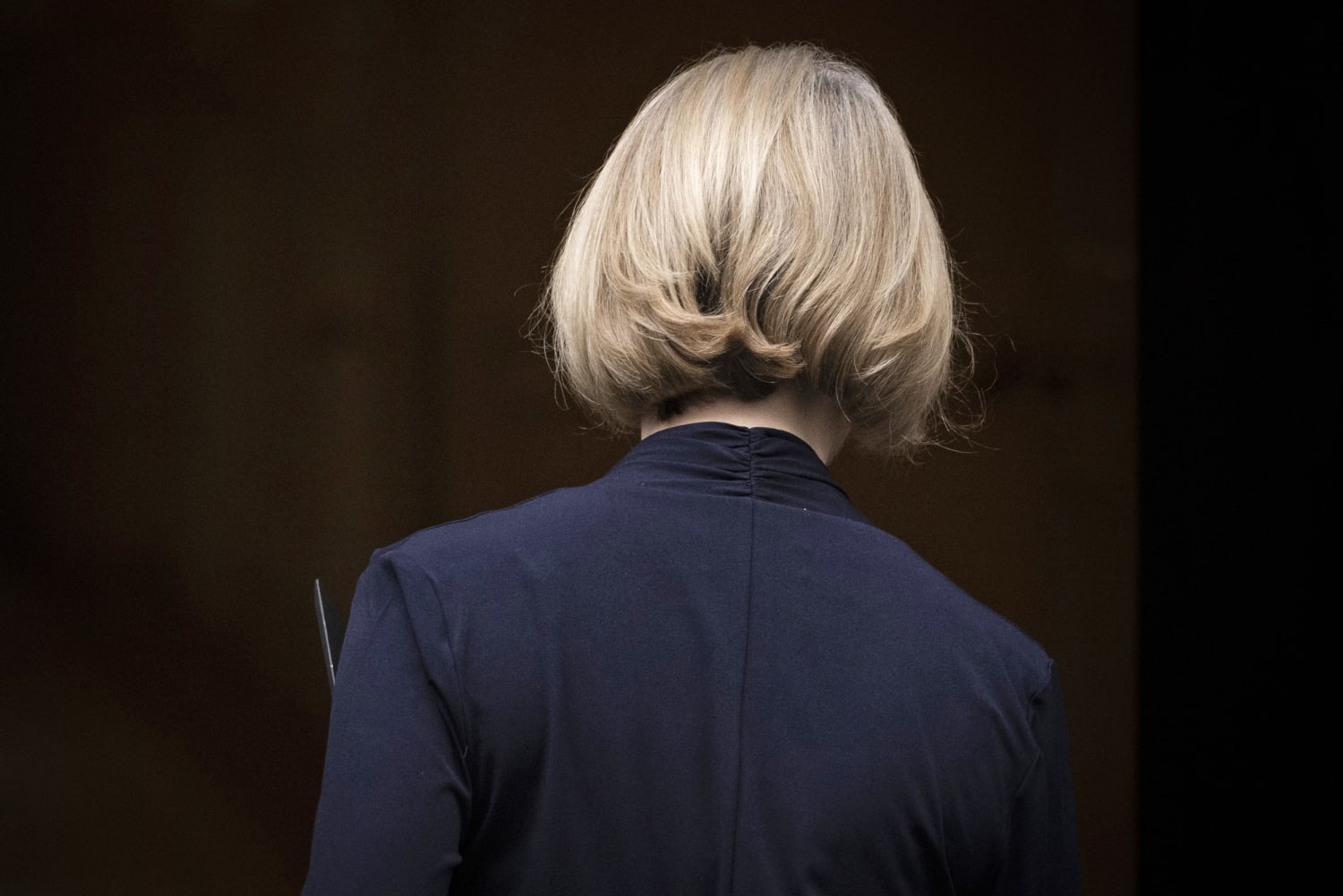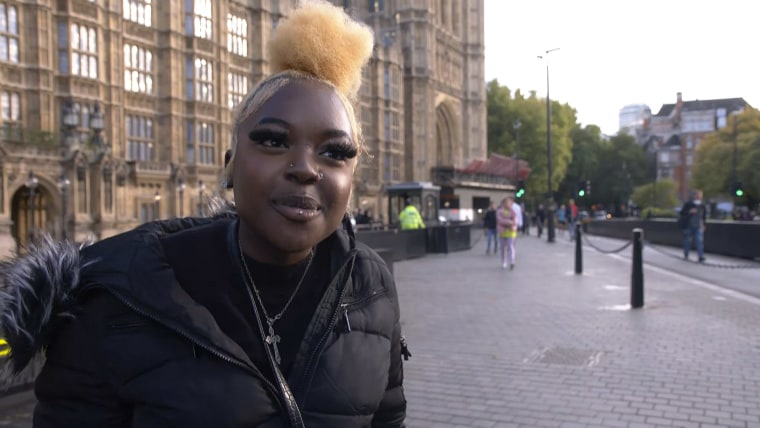LONDON — Her tenure as Britain’s prime minister began in the early days of fall, but it didn’t even last until winter.
After her flagship economic policy sent the markets into a tailspin and was then almost entirely scrapped, Liz Truss was forced out by members of her Conservative Party on Thursday.
“Reality and the Conservative Party have not been best mates from 2015 onwards. They have a long record of ignoring economic forecasts,” said Anand Menon, director of the U.K. in a Changing Europe think tank, based in London.
“It would have come to a head at some point,” he added, referring to the unsteady state of the country’s economy.
But even by the chaotic standards of contemporary British politics, the events leading up to Truss’ departure will be remembered as a high watermark of dysfunction, with resignations and allegations of bullying and “manhandling” in the House of Commons.
Here’s how it all fell apart for Truss and what comes next.
How did we get here?
It started with a 25-minute speech former Finance Minister Kwasi Kwarteng gave in Parliament on Sept. 23, when he upended several long-standing fiscal rules by announcing 45 billion pounds ($50 billion) of unfunded tax cuts, including a tax break for the richest. The plan was criticized not only by the opposing Labour Party, but also President Joe Biden and the International Monetary Fund.
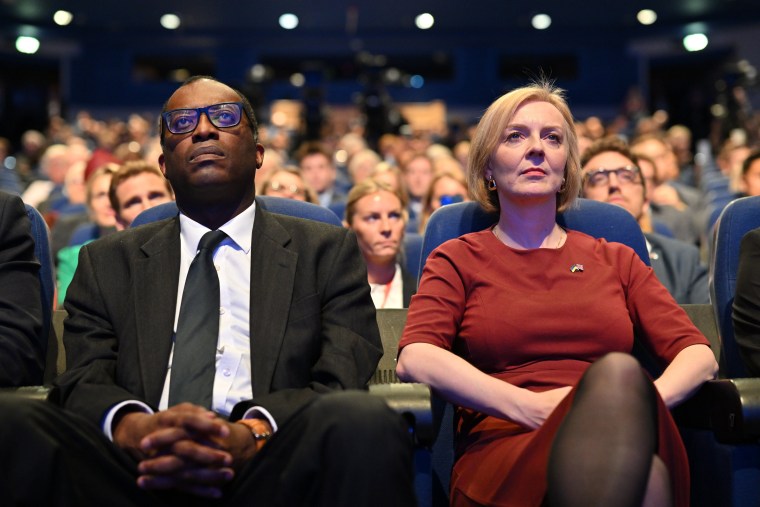
The cuts, an expression of Truss and Kwarteng’s libertarian ideology, were aimed at shrinking the state and empowering entrepreneurs and big business to create jobs and spread prosperity through higher wages.
But the plan left investors and fund managers wondering how Britain would pay the money back. The pound crashed to historic lows against the dollar, and the U.K.’s cost of borrowing ballooned, spooking pension markets and prompting the central Bank of England to step in and buy government bonds.
“Dysfunction in this market, and the prospect of self-reinforcing ‘fire sale’ dynamics pose a material risk to U.K. financial stability,” the Bank of England said in a statement.
With markets in revolt and despite his close relationship with Truss, Kwarteng was pushed out and replaced Monday by Jeremy Hunt, who reversed almost all the economic reforms in a humiliating climbdown.
The prime minister said “sorry” in a TV interview later that day.
What happened on Wednesday?
Truss told Parliament on Wednesday, “I am a fighter, not a quitter,” after repeatedly being told she was unfit for office by opposition lawmakers.
That claim would be tested hours later, when Home Secretary Suella Braverman resigned, becoming the second high-profile government minister to leave Truss’ team within a week.
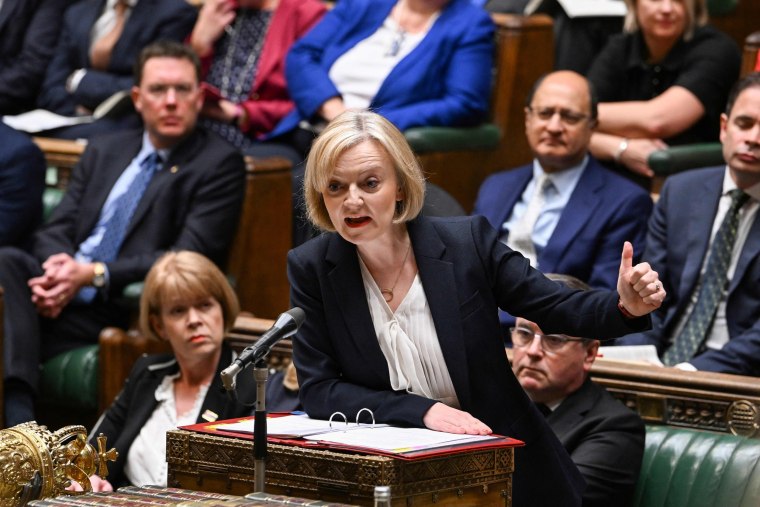
Braverman’s successor, the experienced politician Grant Shapps, had just hours earlier been among Truss’ most vocal critics — a sign that Truss’ authority was gone.
Experts say Wednesday night’s events showed Truss no longer had the support to continue.
“Ultimately you need to be able to command a majority in Parliament. She would be flouting convention to stay,” said professor Tim Bale, an expert on British politics and the Conservative Party at Queen Mary University of London. “It’s a slow-motion car crash that turned into a head-on collision.”
Newspapers still hold political sway in Britain and largely support the Conservatives, normally referred to by their old nickname, the Tories. But this week, usually sympathetic publications had savagely turned on Truss, mirroring the rock-bottom ratings in opinion polls. The Sun went with a single word for Thursday’s front page: BROKEN.
Visibly angry, Sir Charles Walker, a veteran Conservative member of Parliament, summed up the feelings of many colleagues by predicting Truss had no future as prime minister.
“This is an absolute disgrace. As a Tory MP of 17 years who’s never been a minister, who’s got on with it loyally most of the time, I think it’s a shambles and a disgrace,” he told the BBC. “I think it is utterly appalling. I’m livid.”
What’s this about ‘manhandling?’
Later on Wednesday, Labour lawmakers said they saw “jostling” and “manhandling” of Conservative MPs in the House of Commons, allegedly in an attempt to get them to back the government in a vote on hydraulic fracturing, or fracking.
Labour MP Chris Bryant told Sky News on Thursday morning that he saw MPs being “intimidated and bullied,” with some in tears. Conservative Business Secretary Jacob Rees-Mogg said he saw no evidence of this and said it was a “normal” discussion.
Adding to the chaos, a Labour MP told the House there were “strong rumors” that the government’s chief whip — responsible for enforcing party discipline — had resigned. Downing Street was later forced to clarify this wasn’t the case, but the resulting uncertainty meant lawmakers weren’t sure whether they had to back the government or not.
Journalists were texted after 1:30 a.m. (7:30 p.m. ET) Thursday morning by Downing Street staffers to clarify that the vote was enforced with a three-line whip, Westminster jargon meaning anyone who broke ranks and voted against the government would be disciplined.
The government won but at least 40 Conservative MPs failed to vote with the government, even including Truss herself, according to voting records.
What happens now?
There will be an election among Conservative members of Parliament for the next leader of the party by Oct. 28. Truss will remain prime minister until then.
Under an expedited process, leadership challengers must win the support of 100 fellow Conservative Party lawmakers (out of a total of 357) by Monday afternoon. There will be three candidates maximum to vote on. The candidate with the fewest supporters will drop out and the top two will go on to face an online vote of party members.
The winner will then be invited by King Charles III to become the next prime minister.
The Tories are likely to face accusations that they have — again — appointed a leader in a quasi-coronation without asking the general population to vote. Truss didn’t face a general election nor did Theresa May.
But only the prime minister can call a general election and is not mandated to do so until 2024. With Labour riding high in the polls — as much as 35 points ahead in one survey — now would be a very dangerous time for a Conservative prime minister to call one.
Calls for a new election will nevertheless continue, with opposition lawmakers arguing that the mandate the Conservatives won in 2019 under Boris Johnson is now null and void.
“After 12 years of Tory failure, the British people deserve so much better than this revolving door of chaos. We need a general election now,” said Labour leader Keir Starmer on Thursday.
Who might win?
No one has officially entered the race yet, but Conservatives are already saying who they would like to see win.
The current favorite, according to the bookmakers and political pundits, is Rishi Sunak, the former finance minister who resigned in protest from Boris Johnson’s government in July and then unsuccessfully stood for the leadership against Truss.
During that leadership campaign he accurately predicted that Truss’ economic policies would cause big problems in the real world, but was outflanked by the pro-Brexit right wing of the party, that preferred Truss’ libertarian vision.
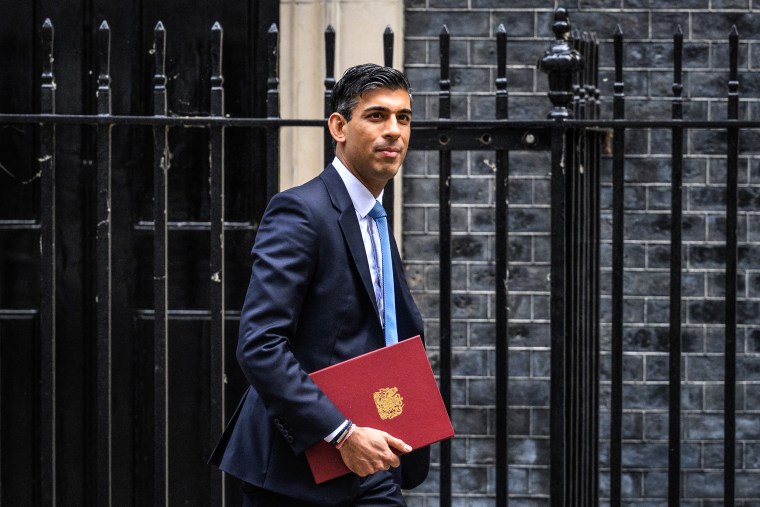
Penny Mordaunt, currently a minister and a previous leadership contender, is also expected to run, with several MPs already declaring they would support her if she runs.
Perhaps most eye-catchingly, at least eight lawmakers are publicly urging Johnson to return for another tilt at the top job in British politics.
“I hope you enjoyed your holiday boss. Time to come back. Few issues at the office that need addressing. #bringbackboris,” tweeted one MP, James Duddridge. Johnson is thought to be on vacation in the Caribbean.
The winner will still have to deal with the economic turmoil that brought down Truss, however.
Source: | This article originally belongs to Nbcnews.com


